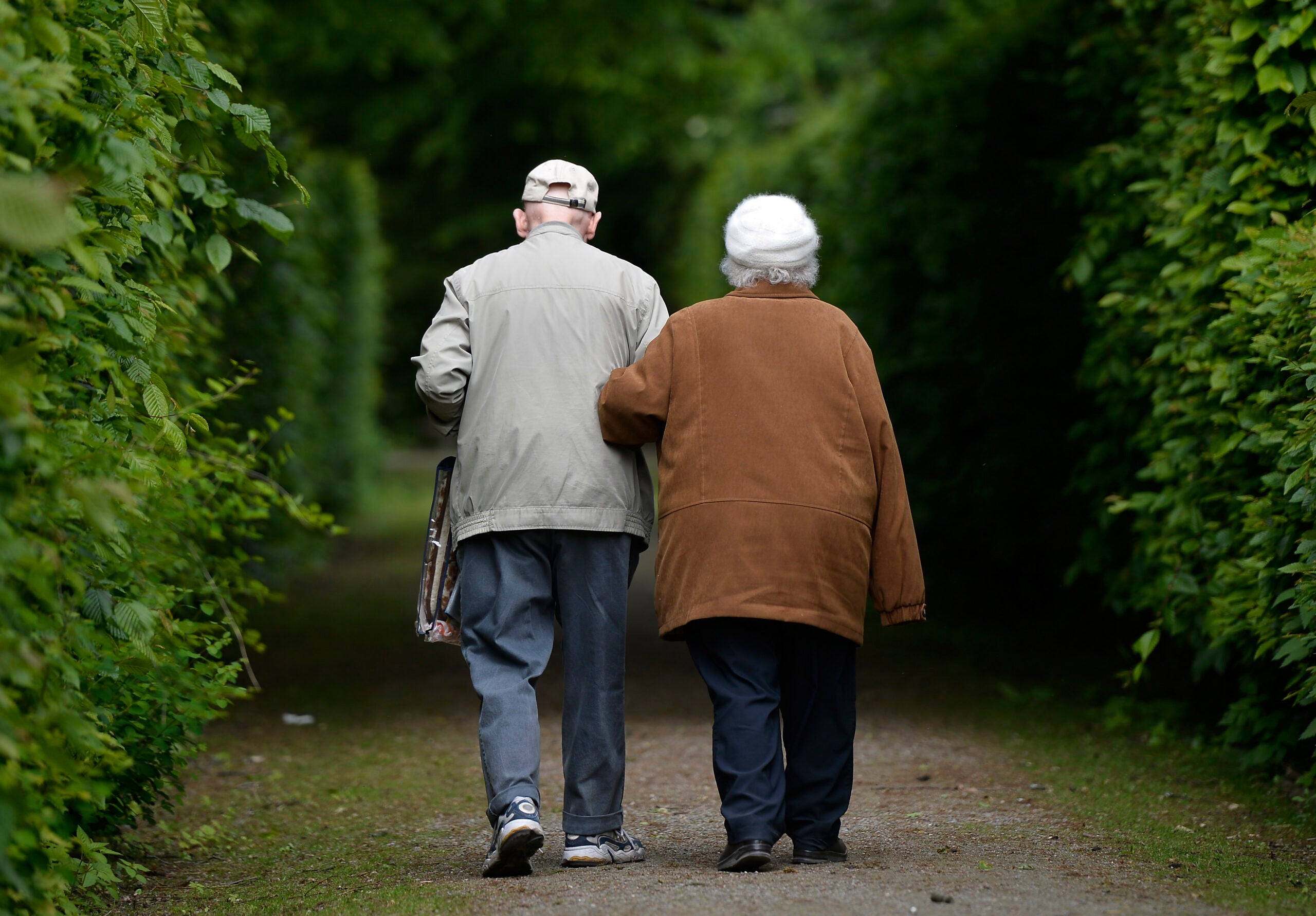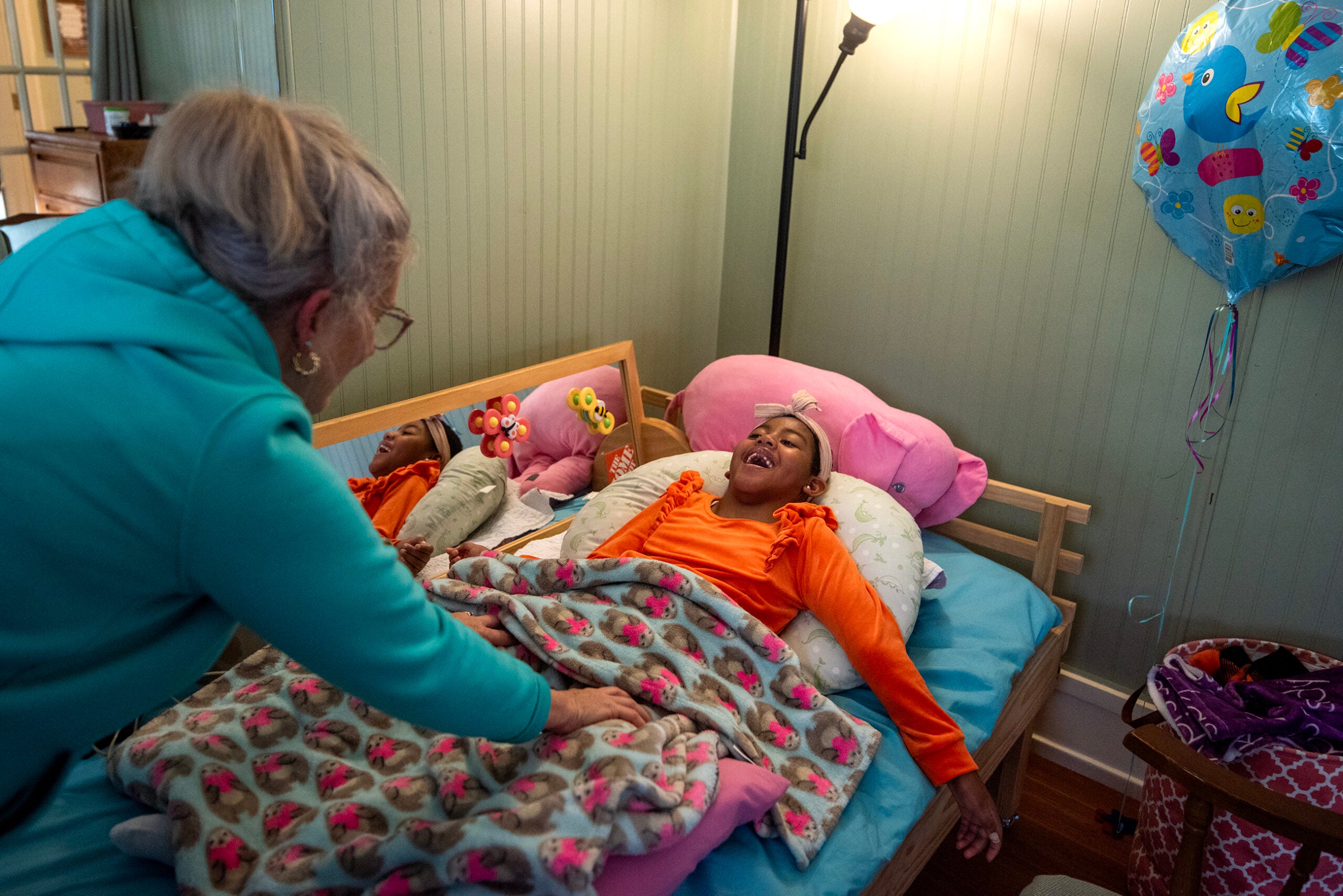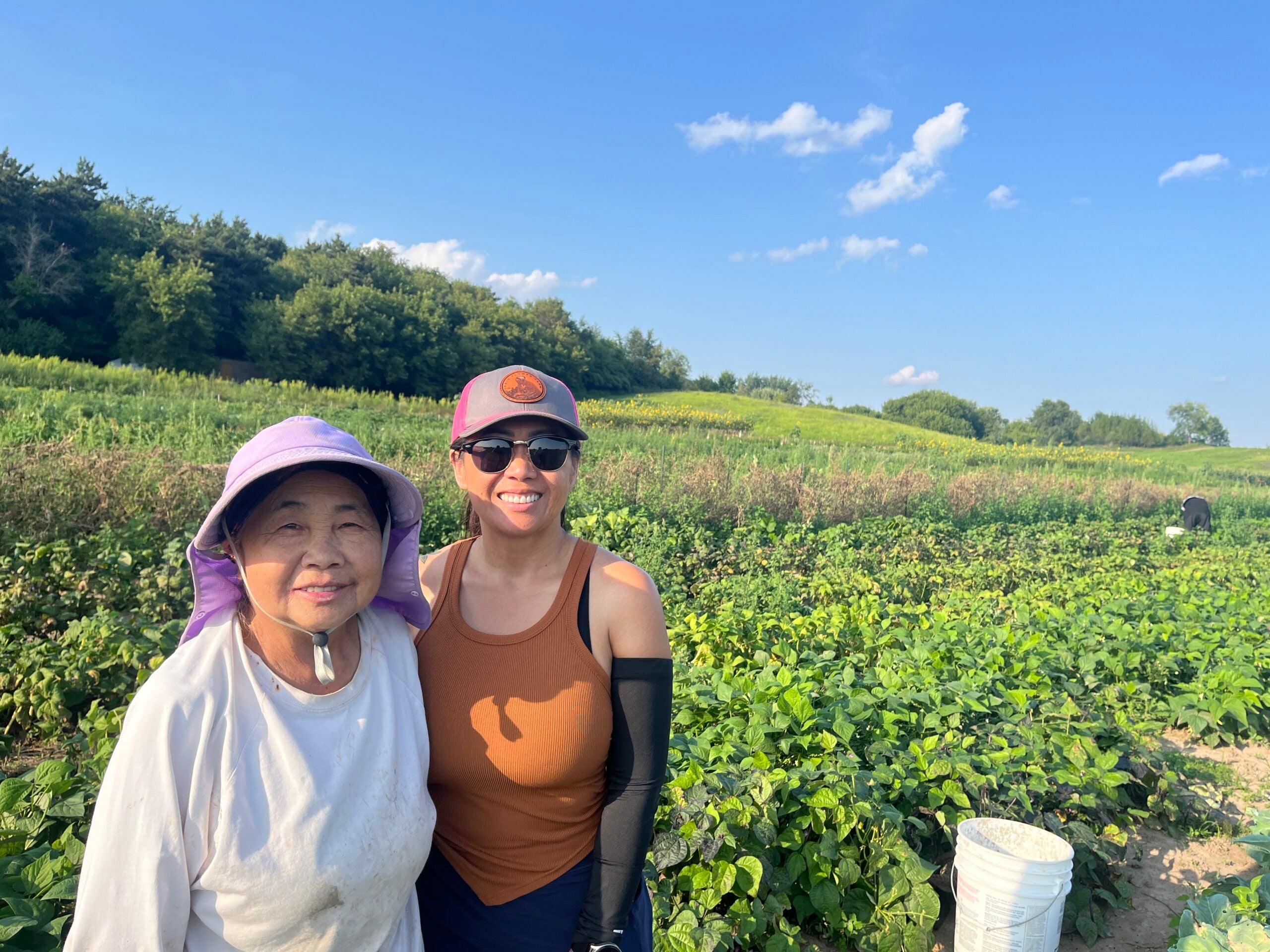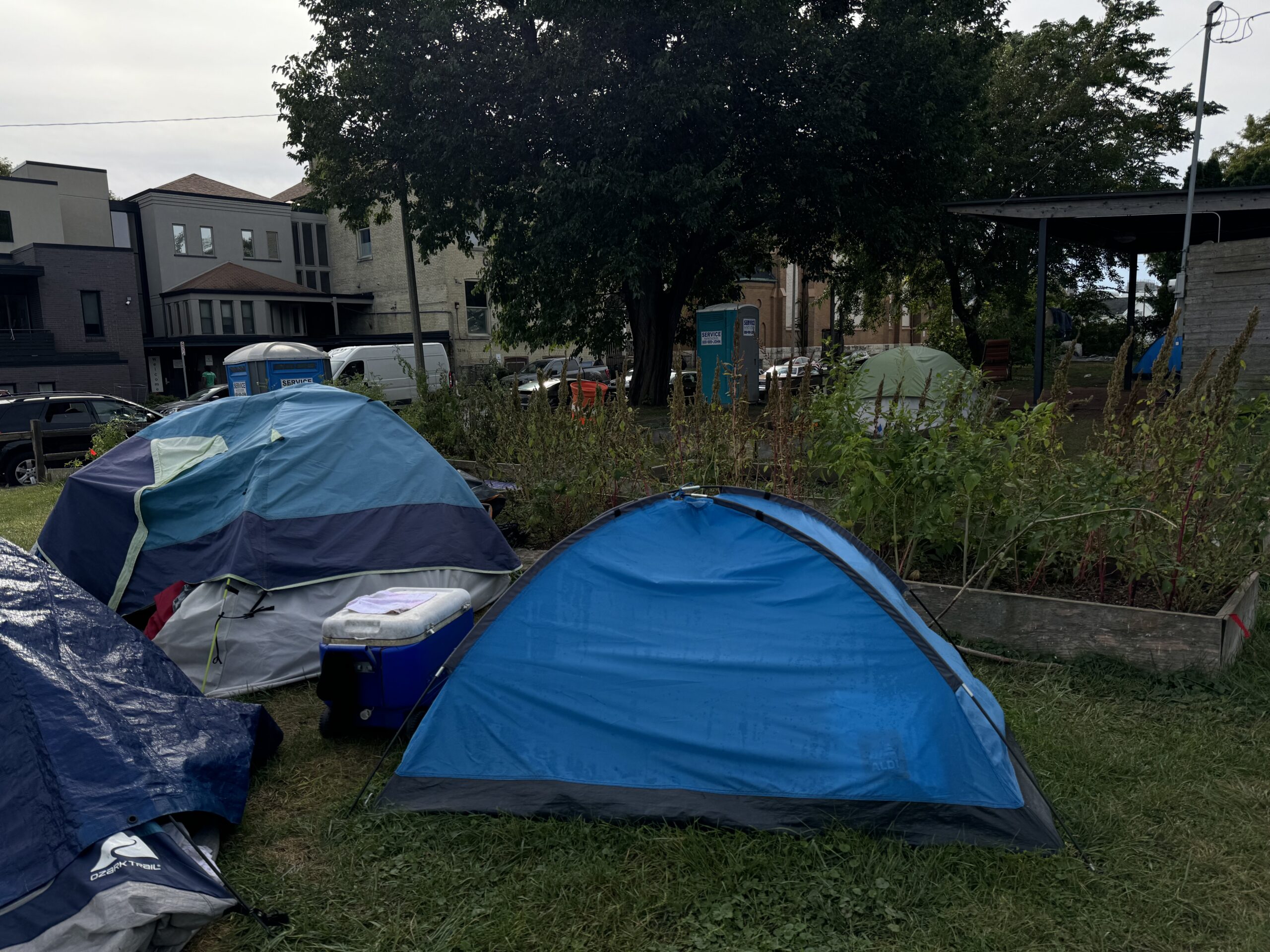More than 580,000 people in Wisconsin are family caregivers who account for an estimated 540 million hours of unpaid work, according to the American Association of Retired Persons.
Learning how to balance what to do for yourself and others is what Joy Jordan of Appleton hopes caregivers can learn through her teachings.
“We’re just lost in the movie of our mind,” she said.
News with a little more humanity
WPR’s “Wisconsin Today” newsletter keeps you connected to the state you love without feeling overwhelmed. No paywall. No agenda. No corporate filter.
Jordan recently told WPR’s “Wisconsin Today” that she teaches mindfulness in the Fox Valley to caregivers, as well as businesses, nonprofits, prisons, schools and other organizations.
On Nov. 2, she will be the keynote speaker for a free event in Green Bay called, “Guiding Caregivers to Wellness.” Registration for the event is required by Nov. 1.
“Mindfulness is an awareness of our own thoughts and emotions and body sensations as they’re happening,” she said.
Jordan learned this after dealing with anxiety. And after 14 years of teaching statistics at Lawrence University, she explored a new opportunity.
“I decided to shift to this thing I’ve been doing for 20 years,” she said. “It has radically changed my life in positive ways.”
Her experience is what led the Brown County Caregivers Coalition, which is part of the local Aging Disability & Resource Center, to reach out to her.
Jordan spoke with “Wisconsin Today” about the importance of taking care of ourselves.
The following has been edited for clarity and brevity.
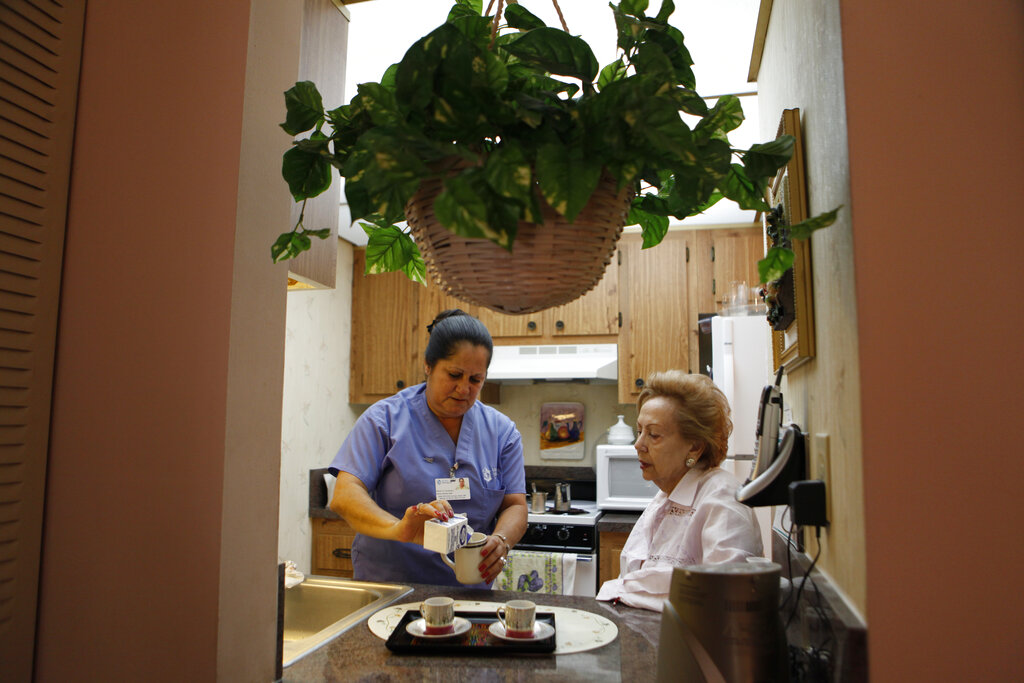
Rob Ferrett: Caregivers are so focused on the person they’re giving care to, understandably, that they can lose track of their own needs. Why is it important for them to focus on themselves?
Joy Jordan: We all intellectually know that if we don’t take good enough care of ourselves, we can’t take good care of other people. There can be some really strong internal expectations that we have of ourselves and sometimes societal expectations about what we should be doing.
But the reality is we will lose our patience. We will not be as loving. We will perhaps be resentful if we do not take care of ourselves. That can translate outward to the folks that we’re caregiving, too. These are all good reasons to try mindfulness.
RF: There is a stereotype of meditation and mindfulness — that it’s self-centered, right?
JJ: Absolutely. Every morning, I sit in meditation, and I am doing that on my own. I’m training my internal state so that I can interact with my loved ones, my friends, my clients, strangers, with more patience and compassion and understanding.
It’s like you’re bringing your mind out into the world, and it’s how we can act more skillfully and have the life that we want to be inhabiting.
RF: How can people get started on making those moments for mindfulness?
JJ: They can happen in small doses. It doesn’t mean you have to sit down and meditate for 20 minutes. I’m a big proponent of small, regular pauses throughout the day.
I often talk about a three-breath pause whenever I’m teaching. I know that sounds overly simplistic, but it really is helpful. Pause for three breaths. That’s it. Don’t make it bigger than that. Take three deep breaths between activities, between actions, between things that you’re doing, and I also like to find regular places that we already pause in our life and utilize those.
For example, if you’re driving someone around to different appointments, you’re in the car, and you come to a red light. Often, we think red lights are getting in our way. You could actually view the red light as a thing in your life that’s encouraging you to stop, to pause, take your hands off the wheel, relax your shoulders and practice mindfulness. How are you in that moment?
Another place you can pause is when you’re outside, maybe just taking a quick walk around the block, or step outside your house. Look up at the sky for three breaths. Looking at the sky engages us with a micro dose of awe, and awe has been related to happiness and wellbeing. Look at the stars. Look at the clouds. Remember that you’re part of something bigger.
Breathe in through your nose, and then when you breathe out, breathe out through your mouth like you’re blowing through an imaginary straw.
Wisconsin Public Radio, © Copyright 2025, Board of Regents of the University of Wisconsin System and Wisconsin Educational Communications Board.

